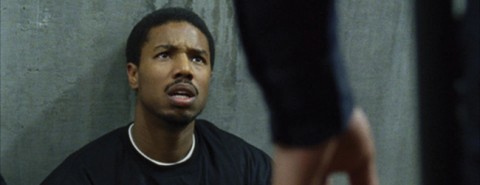Oscar’s last day

Ryan Coogler’s first feature-length film, Fruitvale Station, is a powerful, meditative exploration of one ordinary life that met an extraordinary and tragic end. Oscar Grant (played by the electrifying Michael B. Jordan) was shot to death by a transit police officer after a fight with another passenger at the BART Fruitvale Station on his way home from the New Year’s fireworks in San Francisco on January 1, 2009. Because Grant was a black man shot by a white police officer, the film deals implicitly with larger themes of racism, racial profiling and systematic injustice.
For a movie that touches on America’s deepest psychic wounds, Fruitvale is remarkably reserved. While Grant’s death is clearly portrayed as unjust, the film does little to investigate the motives or defenses of Grant’s shooter, Johannes Mehserle. (He claimed he was reaching for his Taser and pulled his gun instead.) Rather than debate the legal questions surrounding the case, the film offers us an intimate portrait of Grant’s final day.
The film has been praised unanimously for its honest, balanced portrayal of Grant. He is neither a demon nor a saint. He is an ordinary man, which is to say, a flawed one. He is funny, caring, proud, confused, bitter, hopeful, aggressively joyful and sometimes just plain aggressive. He loves his young daughter, his mother and his daughter’s mother, though in the latter case he has not always been faithful. We learn that he has sold drugs in the past (for which he served two prison sentences), but we watch him struggling to find a new hand to play with a deck stacked against him.





